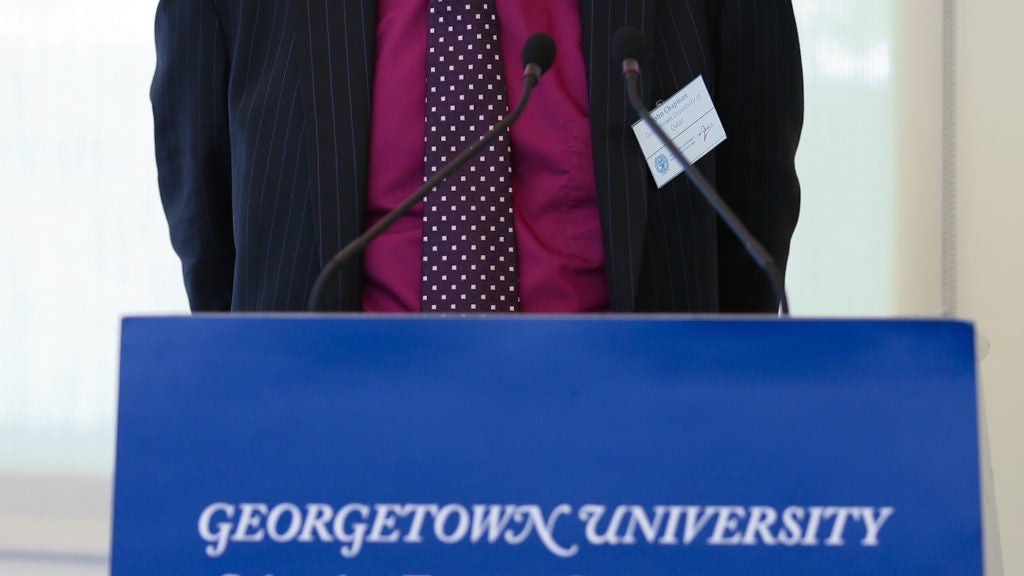Georgetown University Qatar Hosts Internet2 Conference in Doha

Georgetown University Qatar (GU-Q) played a central role in bringing together regional leaders of universities and research and education networks in the Middle East at an Internet2 conference hosted recently on GU-Q’s Education City campus.
Internet2 was formed in the U.S. to provide an integrated platform connecting over 66,000 institutions across the United States, and international networking partners representing more than 50 countries. Georgetown University is among the over 350 member institutions taking part in the collaborative community of leaders from the education, research, and technology communities, recreating the same innovative environment that drove the creation of the internet as we know it today.
Universities were among the first institutions to outgrow bandwidth limitations of the internet due to high data transfer requirements of academic researchers collaborating with colleagues over long distances. In response, the academic and research community founded Internet2 in order to support high-performance applications for universities, and to address education’s most pressing challenges – from the rising cost of education to the increasing globalization of research – as well as for exploring new technology-driven innovations.
Playing a pivotal role in Georgetown’s participation is Johnathon Chapman, Chief Information Officer at GU-Q, and chair of the Middle East chapter of the Internet2 Emerging NRENs Middle East Special Interest Group. “By taking part in the Internet2 community, Georgetown becomes a crucial partner in the effort to produce new solutions for some of the challenges that research and education institutions face, due to the limitations of the Internet’s bandwidth,” explained Johnathon.
An example of how Georgetown benefits is in the notion of the global classroom. “Connecting the main campus and the Qatar campus via video links, where the bandwidth is designated, meaning there is no interference and the quality is so much better than it would ever be on the regular internet. It makes the global classroom possible.” Improved linkages translates to the ability to share and create new knowledge, bringing the campuses together.
The main topic of discussion at the conference was the creation of an open exchange point supporting development of a GCC-wide network of NRENs and broader connectivity to other regional and global networks. An NREN, or a National Research and Education Network, is a specialised internet service provider supporting the technology needs of the research and education communities within countries, and serves as a building block of this non-commercial Internet platform. NRENs are typically where new Internet protocols and architectures are invented and tested before introduction into the Public Internet.
“Right now, connectivity is very expensive – it’s cheaper to connect to London than between the MENA countries – which means that collaboration between institutions is limited. We’re hoping to one day optimize platforms such as open exchange points to dramatically improve connectivity in the region,” said Johnathon.
Around thirty participants took part in the conference, now hosted twice by Qatar, with this most recent conference being the first time it was hosted at GU-Q. Representatives from Northwestern University Qatar, Weill Cornell Medical College Qatar, Qatar University, The Research Council Oman, Arab States Research and Education Network (ASREN), and the UAE NREN Ankabut were among those involved in the group.
“Networking is a key element in this venture.” said Johnathon, adding “everything is based on voluntary contribution. This conference is about creating connections for these emerging markets, or NRENs. Internet2 is about sharing and collaboration for both research and educational purposes which, in turn, enhances Georgetown’s strength as a global university.”